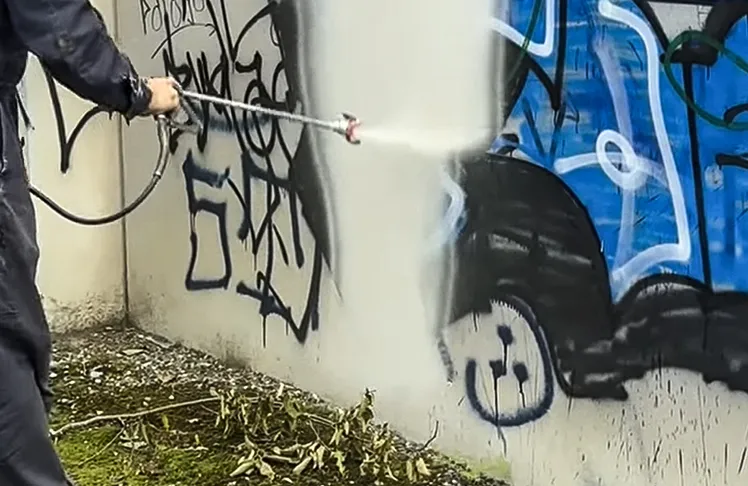
King County is taking a stand against graffiti vandalism, which has resulted in significant damage to local businesses, metro buses, and sections of Interstate 5. During a recent news conference, county officials highlighted their commitment to holding the perpetrators accountable. The King County Prosecuting Attorney’s office has filed 34 charges of vandalism against 17 individuals.
These charges are the result of a months-long collaborative investigation involving the prosecuting attorney’s office, Seattle Police, the City Attorney’s office, Washington State Patrol, and other agencies. King County Prosecuting Attorney Leesa Manion emphasized the seriousness of these acts, stating, “Their acts of graffiti are illegal vandalism.”
The 17 accused individuals face allegations of inflicting approximately $100,000 in damages to various properties, including buildings, public transit vehicles, traffic signs, and the I-5 corridor. In Seattle alone, graffiti removal has become a costly issue for taxpayers, amounting to over $6 million annually, according to Manion. Seattle Mayor Bruce Harrell noted that the problem has escalated since the COVID-19 pandemic began.
Those who grew up in the early times of Hip Hop may be more conservative now. However, graffiti can be viewed as a powerful form of artistic expression and social commentary. It serves as a voice for marginalized communities, allowing artists to convey messages about identity, culture, and social justice. Many graffiti pieces transform public spaces into vibrant galleries, adding color and character to otherwise dull environments. It can also send important messages.
Moreover, when done legally, graffiti can foster community engagement and pride, as local artists collaborate to beautify their neighborhoods. By embracing graffiti as a legitimate art form, cities can encourage creativity, promote dialogue, and celebrate the diverse narratives that contribute to their unique identities. Some remember how important graffiti was to the film Beat Street, produced by actor and Civil Rights activist Harry Belefonte.
But, the some in Seattlehave had it. “Last year, our graffiti abatement teams addressed 23,117 locations, impacting more than 27,000 assets, including signs, light poles, and retaining walls,” Harrell reported. City and county leaders are emphasizing that graffiti vandalism is not a victimless crime and are actively seeking restitution from those responsible for the damages.